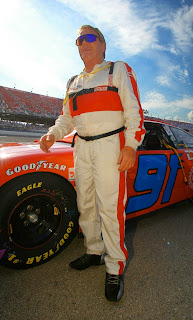A few years ago I attended an out-of-state conference with two colleagues. The plane ride was a hoot. These guys were funny and irreverent and I was looking forward to a great weekend. After we picked up our bags the three of us shared a cab from the airport to our waterfront hotel. A ten-minute ride, tops.
By the time we arrived at the hotel, I wanted to murder my companions.
Far from being funny, they'd used their wit to excoriate the driver, making fun of everything from his looks to his manner of speaking to his taste in music. What struck hardest was their undisguised distain for this man performing such a menial task. The word 'lowlife' came up more than once.
You see, our cab driver wasn't from here. He was a brown-skinned guy with an unpronounceable name and a serious accent, and the music blasting from the speakers danged sure wasn't Sinatra.
So, even though the driver had jumped out of his yellow taxi with a smile and lifted our heavy suitcases into the trunk before opening our doors, my friends felt justified calling him a 'sand nigger.' Even though the cab was clean, the ride comfortable, and the route direct, the human being who performed this valuable service didn't merit the dignity of a polite 'thank you.'
Never mind that he was Ethiopian (a majority Christian nation), well-educated (try taking a driving test in a foreign language sometime), and a hard-working small business owner, my companions were fixated on the social services this man was sucking up. My colleagues complained (loud enough for the driver to hear) that 'they' only come here for free schools and free food vouchers and free healthcare.
Red-faced, I had leaned between the seats to ask questions during the ride, hoping to drown out the idiots beside me. The driver told me where he was from, that he was an independent contractor with the cab company. When we got to the hotel and my friends had taken their bags, I lingered at the trunk. "Do you have family here?"
The man nodded. "A wife and two children." The enthusiasm in his eyes had been replaced by something bleaker. "My wife works in a kitchen. I am a chemist, but in my country..."
I wanted to say so much that day: That what he'd done for himself and his family represents what Americans say we value. Hard work, bravery, sacrifice for the greater good. That
anyone who works deserves respect, regardless of the nature of that toil. That the four miles from the airport to the hotel would've been a damned difficult slog with my shoe-laden suitcase, and I was grateful for his service.
Instead, I gave him a twenty-buck tip on a ten-dollar fare and wished him a good afternoon.
source: HiloCommunityPlayers.org
But the experience sharpened a thought that had been coalescing for a while. My friends might be jerks, but their views weren't unique. After listening to them the rest of the weekend, I realized they genuinely believe they're paying for a huge population of poor people who rely on public support to survive.
In a sense, they're correct.
The problem is, those same people are working forty or fifty hours a week. They literally have no more hours of their lives to trade for dollars, yet need public assistance to survive.
Have we become so resentful of the social safety net we can't see how our reliance on cheap labor makes it necessary? Want to get rid of food stamps? Great! Raise wages so anyone who works can survive without them.
Did you hear me? Anyone who WORKS.
Fast food, janitorial, retail clerk. No matter how menial, boring, or unchallenging the job, work is good, right? Something we should laud as righteous and worthwhile and as deserving our respect.
But is that really what I believe, or do I secretly look down on folks who do the crappy jobs I can't imagine doing?
If I'm honest, I'm as bad as my colleagues. At least they don't hide their disdain for 'lowlifes' in minimum-wage jobs. Sure, I talk about dignity and hard work, but where do I spend my dollars?
Because when I order a cheap burger knowing the woman who cooked the meal can't feed her own family on what she earns, I'm saying I don't value work. Maybe I cringe at the words 'sand nigger,' but when I shop at a certain Arkansas-based chain whose full-time employees drown beneath the poverty line, I'm saying I don't believe folks who work there should earn a living wage.
(Probably wouldn't hurt to skip the burger altogether.)
Legislation would be nice (ain't gonna happen), and I'd love to see minimum-wage workers rise up and prove how much they contribute to the economy. But maybe the rest of us simply need to focus--again--on valuing work over wealth.
Here's a
list of fast-food chains that pay a living wage. Next time I eat out, I'll check the interwebs for companies who pay their employees well and declare my support with my own hard-earned dollars. If you love shopping at big-box stores, here's
proof that paying employees more yields bigger profits (and better service!) At Christmas, why don't I take ten minutes to find out whether the store believes as I do--that people who work shouldn't need food stamps to survive.
My colleagues are free to believe as they choose. Instead of focusing on their horrific manners, I'd have been better off investigating my own beliefs--and holding them up against my actions.
Starting today, I'll do just that.
Cheers...and Happy Shopping!
-T















.jpg)


